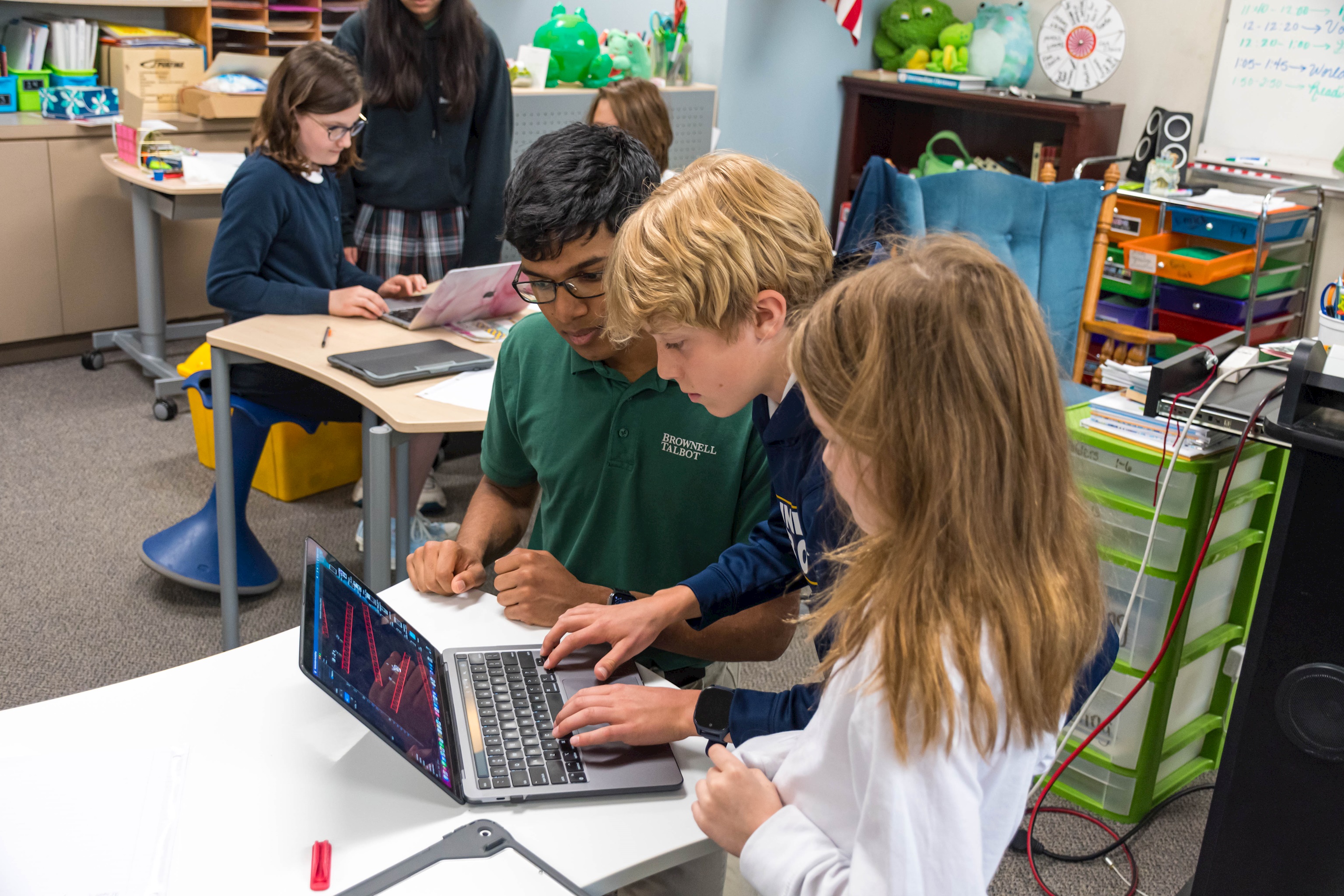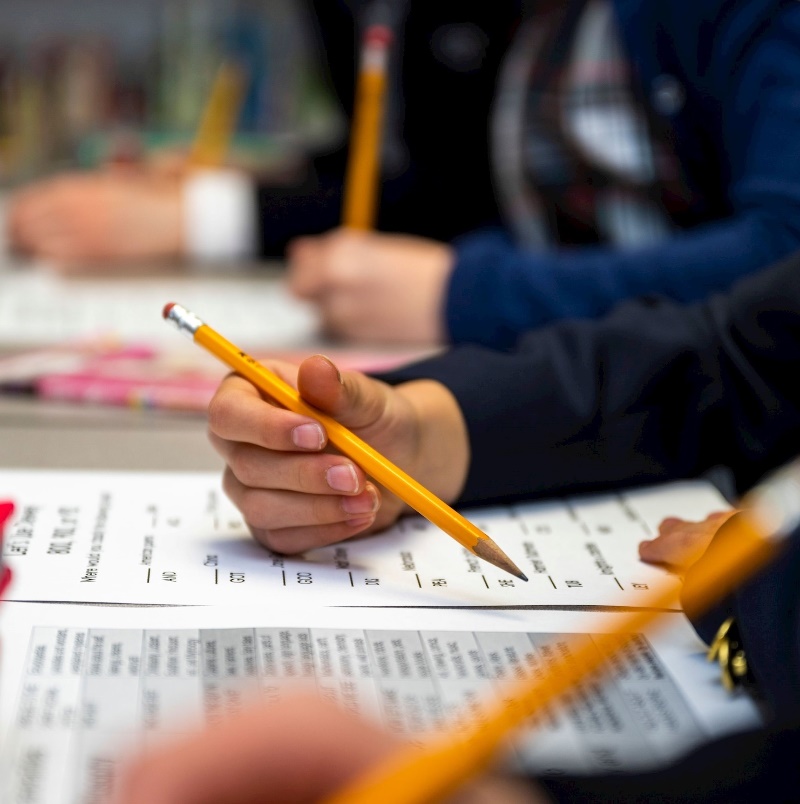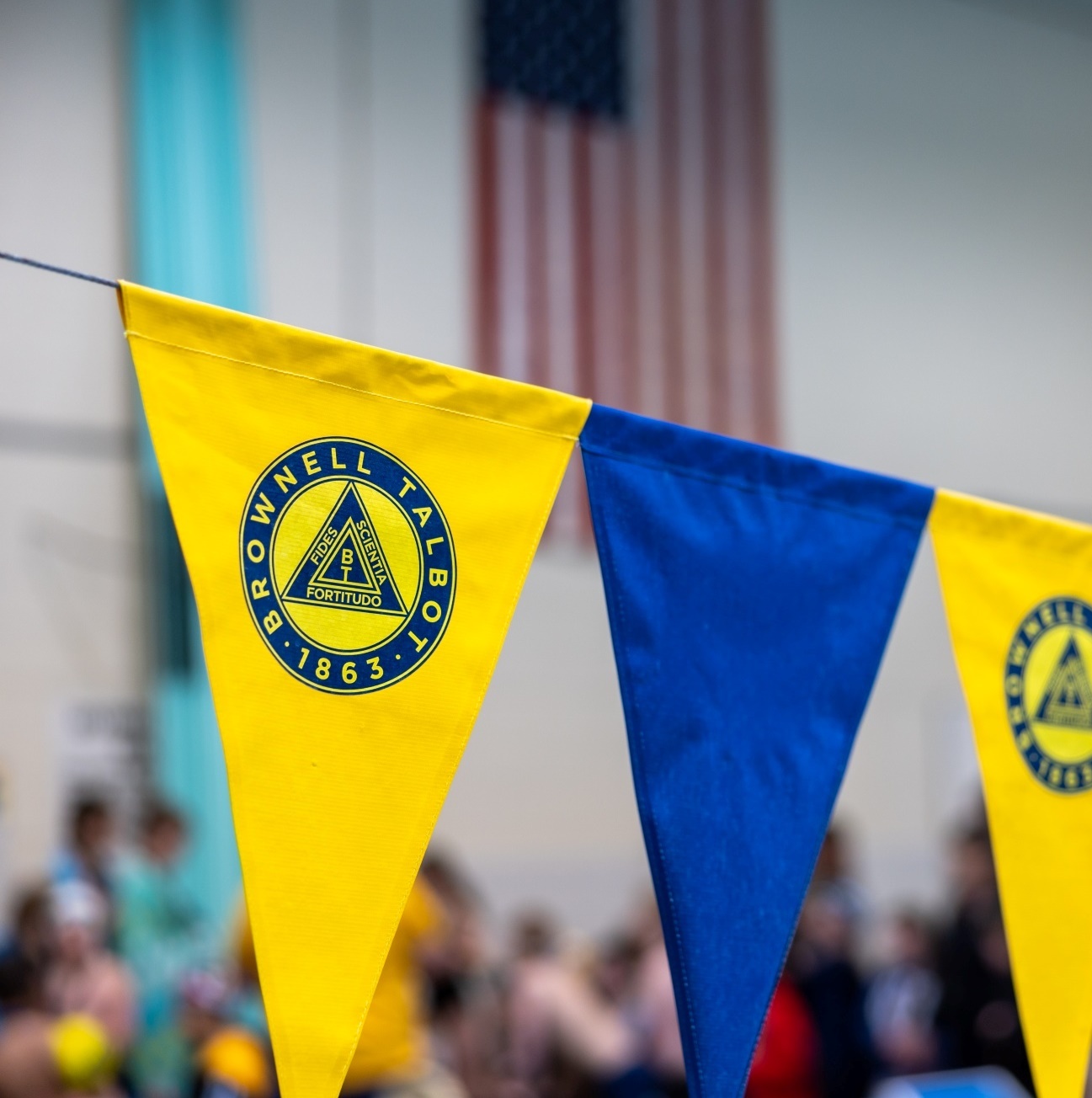
In Mrs. Carrie Rise’s Multivariable Calculus class, students were challenged to connect their advanced mathematical knowledge to real-world applications. With a desire to inspire younger students and nurture their love for math, the class embarked on an ambitious project – creating an educational video game.
The journey began with a collaborative effort to identify a need and develop a solution. After careful consideration, the students decided to focus on helping younger BT students become more interested and confident in their math journeys, paving the way for them to reach the level of Multivariable Calculus when they reach Upper School.
To ensure the game’s relevance and appeal, the Multivariable Calculus students partnered with BT’s fourth grade classes for product research and testing. Through interactive sessions, they gathered insights into the students’ relationships with math and explored whether a video game could enhance their learning experience. This feedback helped them define their target market and tailor the game’s design accordingly.
With a general understanding of where they wanted to go with the project, the class formed specialized teams to tackle various aspects of game development. These teams included coding, animation/character development, educational development and outreach, interface design, planning, quality assurance, project management, game testing, and general development.
“The hardest part of the game development was just getting started because there were so many unknowns,” said Francesca Vidal, ’24, who was part of the educational development and outreach team. “Once we formed our teams and were able to focus just on our roles, it got a lot easier.”
Drawing inspiration from the popular Donkey Kong franchise, the students created “BT Barrel Bash,” a game where players must solve math problems by bashing the correct number/barrel answers and avoiding the wrong ones. The game features familiar characters like Mario, Princess Peach, Toad, Yoshi, and Bowser, making it both engaging and relatable for younger players.
Mrs. Rise commended her students’ problem‑solving skills and open-mindedness throughout the development process.
“Part of the reason they are in Multivariable Calculus is because they have outstanding problem-solving skills. Creating the game has posed a lot of problems, and everyone has approached it with such an open mind and an attitude of, ‘I don’t know how to solve it, but I am willing to try.’”
The project required students to venture into unfamiliar territories and acquire new skills. The interface development team studied online resources and created each screen using the free online graphic design tool Canva. The animation/character design team learned Photoshop and scripting techniques to bring their characters to life. Even coding posed challenges, as the students had to adapt their game to work in a Mac environment after initially coding it for the internet.
After countless hours of hard work and learning, the students were able to conduct a soft rollout with the fourth grade classes, testing the game and identifying areas for improvement. This feedback will be invaluable as next year’s Multivariable Calculus class takes over the project, continuing to refine and enhance the educational gaming experience.
Through this remarkable project, the Multivariable Calculus students not only applied their mathematical knowledge but also developed valuable skills in collaboration, problem-solving, and project management. Most importantly, they showcased their commitment to inspiring the next generation of math enthusiasts, ensuring a lasting impact on the BT community.



















